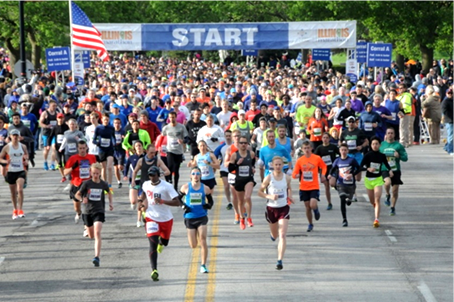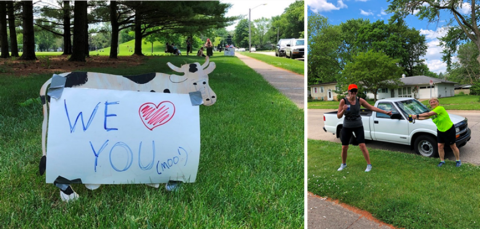Social capital is a necessary ingredient for linking resources and networks for community development. Events and festivals provide a great platform for generating social capital. Therefore, the purpose of this info brief was to present how event managers could foster social capital through community events.
Why Social Capital Matters?
Most scholars refer to social capital as norms, connections, and networks among individuals that facilitate collective actions (Putnam, 2015). Social capital is significant for society at various levels. At the individual level, social capital is reflected in supportive relationships and trust among individuals, which fosters a sense of belonging. At a broader level, social capital is also reflected in cooperative activities, such as voluntarily serving on a steering committee in a community. Such activities instill confidence in community organizations and promote cooperation among institutions, which can positively influence economic development.
Social capital, however, can be low or absent in communities across America. Despite New Hampshire's ranking as 4th in social capital scores among the 50 U.S. states according to a report from the U.S. Congress, a decline in social capital is evident in various areas, including bedroom communities, rural communities invaded by exurbanites, and many urban neighborhoods (Putnam, 2015). The recent COVID-19 Pandemic has further distanced people from each other. Although many in-person activities have resumed, reliance on electronic devices and virtual communication raises concerns about generating social capital, which often arises from face-to-face, collective actions (Chen et al., 2024).
Key Findings on Social Capital in Community Events
Community events provide a great avenue for social capital formation because they provide social gathering opportunities for people where they meet and socialize with people with similar interests and backgrounds (Kaplanidou & Potwarka, 2024). Most community events are held on a recurring basis, which is beneficial for social capital maintenance, as they provide opportunities for people to meet and interact regularly. Residents have the opportunity to connect with others both within and outside their community at these events, such as food festivals or youth sport competitions. The long-lasting, durable relationships that result from these events act as a strong adhesive to bond people together within the community. However, most hosting communities and local governments are not fully aware of this type of social capital. Additionally, previous studies have shown that social capital tends to be generated within a limited social circle, typically consisting of people with high socioeconomic status (e.g., Chen et al., 2024; Zhou & Kaplanidou, 2018). It is unlikely for these privileged groups to spontaneously share the social capital with a broader community network unless targeted efforts are made by event organizers and local governments.

Leveraging Community Events for Social Capital:
The Case of Illinois Marathon
As a Boston Marathon qualifier, the Christie Clinic Illinois Marathon is an annual for-profit running event which took place for the first time in Champaign-Urbana, Illinois, on April 11, 2009. Between 2009 and 2019, the average number of participants in the Illinois Marathon was 17,263 and included both elite athletes and amateur runners. Recognized for its significant contribution to the local community, the Christie Clinic Illinois Marathon Race Weekend was rated as the top Community Event in Champaign-Urbana, Illinois, by a local news bureau in October 2020.
In this case study, we presented several strategies employed by event managers to foster social capital through hosting this annual event. Some examples included:
Initiate a multiple-week training program before the event: In preparation for the marathon, event organizers create a program where participants can train together, build friendships, support each other, and share running knowledge and experiences.
Hold a post-event appreciation party: Event organizers host an appreciation party where key event stakeholders from various backgrounds can gather, connect, and get to know one another.
Use local sponsorship exclusively: This approach strengthens the social structure of the local community over time, which facilitates coordination and cooperation among local businesses for mutual long-term benefit.
Despite the cancellation of in-person events during COVID-19, event organizers were still able to launch some creative programs to maintain social capital. Some examples included:
Virtual race: participants were free to choose any location, setting, and route to complete the virtual race themselves or with their friends at their convenience between May and June 2020.
Virtual challenge: an ongoing, interactive sport program stretching from November 2020 to May 2021. To participate in this competition, registrants could run or walk at any location. Their cumulative distance would cover the west-to-east width and/or north-to-south length of the state of Illinois over six months.
A Vignette of Social Capital Development through Community Events
Since the Christie Clinic Illinois Marathon has been held in Champaign-Urbana for over a decade, some participants developed close ties with each other. Therefore, although the in-person event had to be converted into a virtual race in 2020, participants took the initiative to maintain and develop social capital within the virtual race setting themselves.
In this case study, we presented how Betsy, a long-time participant in the Illinois Marathon, designed her own virtual race. Some examples included:

Photo credit: Betsy
Creating a Facebook page to invite people to support her race before the event:
Spectators for this virtual race included both her friends and people she did not know well. This virtual event also allowed the Director of the Illinois Marathon to come out and support runners like Besty. During the previous in-person race, the Director was preoccupied with managing the complex event logistics, leaving her with limited opportunity to engage deeply with the participants. For this virtual race, the Director was able to socially connect and cheer for all the runners who virtually participated.
Making creative signs to theme the event: To attract more spectators and increase visibility, participants placed signs along the route for the virtual race. For instance, Besty’s friend designed a sign saying “We love you (Moo!)” for her (see the figures above). This approach also enhanced the atmosphere of the event.
What Communities Can Do to Foster Social Capital through Events
To make New Hampshire more eventful and promote social capital through community events, event organizers may consider creating space and opportunities for event participants to socialize and connect prior to, during, and after events. The emphasis should be on relationship building and meeting new people in the community. To achieve this goal, we propose the following strategies:
Hosting a series of interrelated events all year round: Instead of hosting just one or two separate events, officials in the chamber of commerce or destination council may consider packaging a series of interrelated events (e.g., sporting events, festivals, or community fairs) under a coherent theme to link them together. This approach would help attract more participants to the destination.
Leveraging the local business partnerships: Based on the practices of the Illinois Marathon, it would be beneficial to primarily collaborate with local businesses to host events. This approach would strengthen the ties among small businesses in the local community.
Using technology to enhance community engagement: It is worthwhile to consider digital or technology-driven solutions that accommodate different lifestyles and needs in the event setting, bringing together people from various backgrounds.
Authors
Dr. Guangzhou Chen, Extension Affiliate; Assistant Professor, Recreation Management & Policy, University of New Hampshire
Guangzhou Chen is an Assistant Professor in the Department of Recreation Management and Policy and holds a joint appointment in the Community and Economic Development Team at UNH Cooperative Extension. His research focuses on how events of various types can be leveraged to provide benefits to the hosting destination. Through his research, he strives to provide recommendations for the design and management of event programs to maximize positive outcomes for event stakeholders and local communities, such as active living, community development, and sense of community. In this research area, he is currently working on three major research projects: (1) leveraging senior games for active living, (2) leveraging the cancellation of in-person events for positive social outcomes, and (3) leveraging a series of interrelated events to build a more eventful New Hampshire.
Dr. Bo Yu, Assistant Professor, Sport Management, University of Minnesota
Dr. Luke Potwarka, Associate Professor, Recreation & Leisure Studies, University of Waterloo
Resources
Chen, G., Welty Peachey, J., & Stodolska, M. (2024). Leveraging the cancellation of in-person sport events for sense of community: the case of the Illinois Marathon. Event Management, 28(1), 41-57.
Kaplanidou, K., & Potwarka, L. R. (2024). Sport Events and Community Development. Taylor & Francis.
Putnam, R. D. (2015). Bowling alone: America’s declining social capital. In The city reader (pp. 188-196). Routledge.
Social Capital Index - - United States Joint Economic Committee. (n.d.). https://www.jec.senate.gov/public/index.cfm/republicans/sci/
Zhou, R., & Kaplanidou, K. (2018). Building social capital from sport event participation: An exploration of the social impacts of participatory sport events on the community. Sport Management Review, 21(5), 491-503.

